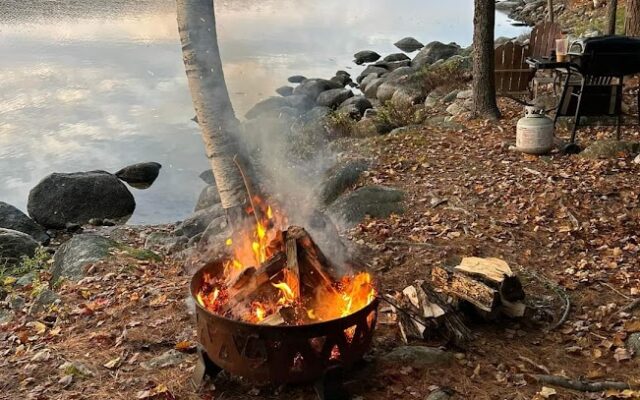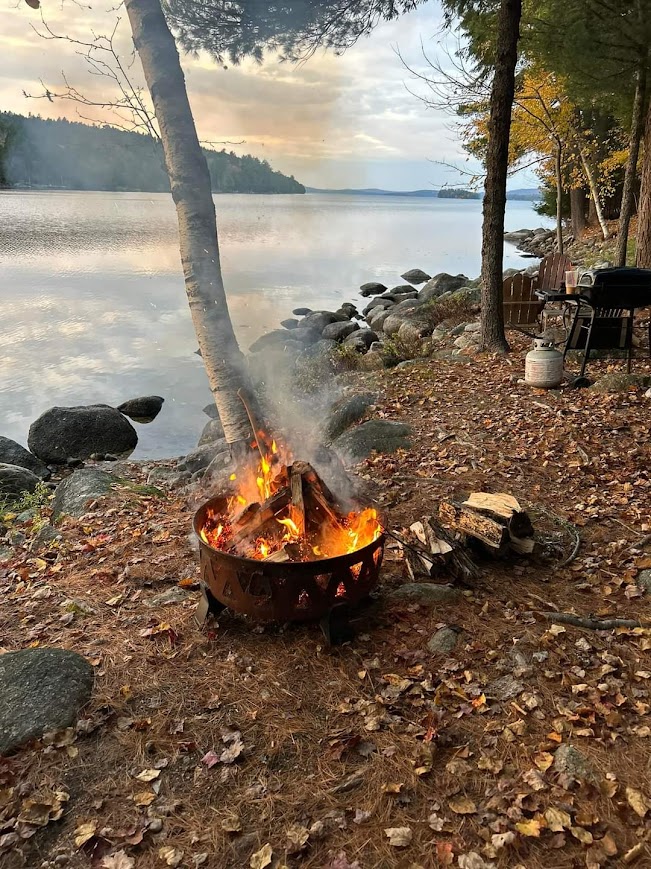
What Maine outdoor lovers need to know about this summer’s dry conditions
By Susan Bard, Bangor Daily News Outdoors Editor
The dry conditions in Maine mean that people enjoying the outdoors should use extra care to avoid starting a forest fire.
The North Maine Woods and KI Jo-Mary Forest announced Aug. 11 they were not issuing fire permits. That means no fires are allowed at any unmaintained backcountry site or any area that requires a fire permit.
Fires are still allowed at established campgrounds with maintained facilities and at private camps where permits are not required. Established campgrounds typically feature designated fire rings, nearby water sources and regular maintenance by staff or volunteers, while unmaintained backcountry sites lack these safety infrastructure elements.

CONTAINED CAMPFIRE — A campfire contained in a metal container, which the Maine Forest Service recommends.
This news should come as no surprise to outdoors users, as the Maine Forest Rangers updated fire danger at 9 a.m. this morning, rating it as high across the entire state. Current fire danger conditions can be viewed on the Maine Forest Service’s interactive fire danger map (https://www.maine.gov/dacf/mfs/wildfire_danger_report/index.html).
While the Maine Forest Rangers have an online permit system for controlled burning, this system automatically stops issuing permits when fire danger reaches high levels or above.
The Maine Forest Service has responded to multiple fires in the past week and over this weekend, including the Track Fire in Baileyville, which has burned approximately 30 acres.
Conditions in the state are extremely dry right now. High temperatures, wind, low relative humidity, and the absence of meaningful precipitation are all factors that contribute to the “high” fire rating.
In areas where recreational fires are still permitted, fires must be no larger than three feet by three feet. The Maine Forest Service encourages any burning to take place after 5 p.m., when temperatures and winds typically decrease, or better yet, to avoid fires altogether during these conditions.
Many local municipalities have set their own restrictions on open burning beyond state regulations. For campfires in organized towns, residents should consult their local fire department, warden or forest ranger before conducting any burning.
Recreational forest users who choose to have a campfire should ensure their fire site is cleared down to mineral soil, ideally contained within a metal fire ring. Many people underestimate how much water is needed to properly douse a campfire – they should extinguish them with at least five gallons of water, stirring the ashes thoroughly.